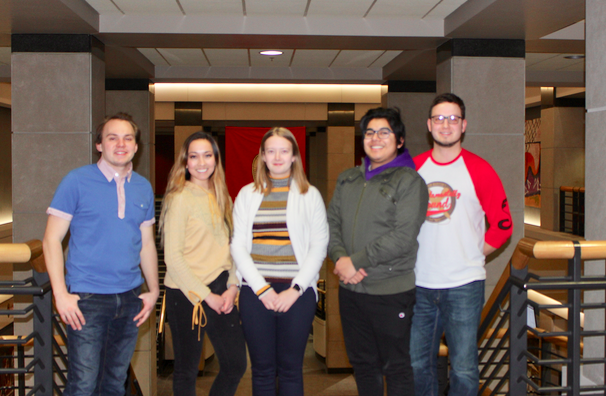In the face of a tense political climate, University of Wisconsin student organization Millennial Action Project aims to bridge the current political divide among young adults.
MAP, founded and presided by UW alum Steven Olikara, is an organization that seeks to combat partisanship and facilitate cooperation across party lines in government. The UW chapter is the first of the organization.
According to their website, the group targets millennials because of the generation’s open-mindedness, which allows the group to facilitate new conversations and innovate.
The group will be hosting a Red and Blue Dialogue event March 6. These events aim to improve engagement on issues that affect everyday life from people across the political spectrum.
MAP President Lani Bohm described the event as a way to bridge partisanship and connect those with differing ideologies.
“What we’re doing is hosting a dialogue event,” Bohm said. “The idea is to get a bunch of people there from a bunch of different ideologies, mix them up on purpose, and sit them down and get them to talk about an issue we all care about.”
The dialogue will be will be centered around financing higher education and student debt in Wisconsin.
Bohm said the issue selected is highly relatable but not overly sensitive.
According to WalletHub, Wisconsin ranks 15th in the U.S. for the most student loan debt.
“We chose this because it’s something that every single student on campus, by definition, is dealing with … so it’s something everyone can speak on,” Bohm said. “It’s not a super hot topic either, which is good because it’s really easy for those to turn into a debate, and that’s not what we want.”
Bohm said the event was not a debate by any means.
“The point of us coming together is not to debate,” Bohm said. “It’s to discuss what we feel, why we feel it, and move forward together and try to find some common ground.”
Finding common ground, Bohm said, is an integral part of MAP. She cited a group activity where members of MAP reacted and responded to a TIME article, “There’s Nothing Virtuous About Finding Common Ground.”
While Bohm said there was discourse amongst the group and many could not find consensus, it was an integral discussion that allowed members to explore the idea of common ground.
MAP social media coordinator Alex Reis said the event was unique in that it allowed for vulnerability.
“I think something that also sets us apart is that you don’t have to have any sort of political experience to come to this dialogue,” Reis said. “We want you to speak from personal experience. That’s really the only thing all of us can 100 percent speak from. By sharing your experiences, you’re having vulnerability, and through that vulnerability in the space, people can make connections.”
MAP Vice President Alex Martinez said the group’s podcast, “RoadMAP to Politics,” is another way the group facilitates open discussion. On the podcast, he and others discuss a variety of political topics.
Martinez emphasized that the event tried to focus on people as opposed to anything else.
“When you come in, you don’t know who you’re sitting with or what their ideology is,” Martinez said. “It’s really focused on the people. Policy does affect people, real people can’t forget that, and experience is a really big part of that.”


